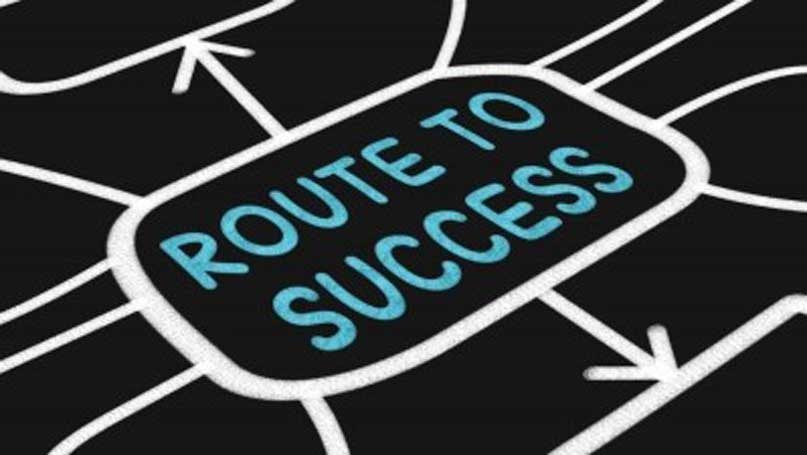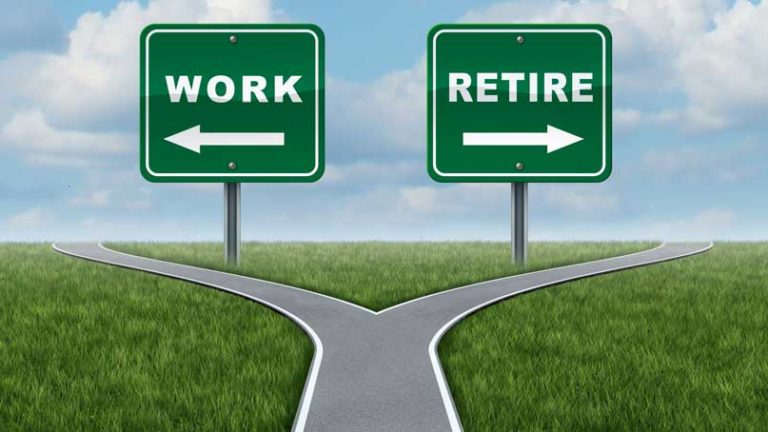Some FIRE proponents interpret the “Retire Early” part of FIRE to mean retiring in your 30’s or even 20’s. Maybe it’s because I’m in my 40’s, but I still believe retiring in your 40’s or 50’s is retiring early.
I certainly believe that the pursuit of FIRE becomes more important in your 40’s, 50’s and beyond, even if FIRE is just about the “Financial Independence” half.
FIRE is a hedge against unemployment

You may love your job and have no desire for early retirement, intending to work till you’re 65. However, this doesn’t mean you’ll be able to work for that long. You may become disabled, and disability insurance (if you even have it) typically only covers a fraction of your salary. Even if you’re perfectly healthy, your career may be interrupted to care for an elderly family member. One of the readers of my career blog asked me if she should quit her job to care for her parents. The toll of elder care on your ability to continue a career is real and significant.
The job you love so much now may change later (but sooner than you think). New management could come in and demoralize the company culture. Organizational changes could switch your daily responsibilities to tasks you don’t enjoy as much. Market forces could dramatically change your role, company or industry. I have worked in financial services and media, two industries hard-hit by consolidation, shifting economics, and disruptive technology.
Companies can disappear altogether: Kodak, Enron, Lehman Brothers, Arthur Andersen – I just named four big companies in four different industries (manufacturing, energy, banking, professional services) that were at the top of their game till they simply disappeared. No sector is immune.
I know people who worked for non-profits invested with Bernie Madoff that closed their doors with no notice after his Ponzi scheme was discovered. Even the public sector isn’t secure – witness the recent government shutdown.
Unemployment at any age is difficult, but it’s arguably more difficult in your 40’s and beyond. You are locked into higher expenses. Your 20-something self might not mind slumming it in your car to save money. However, Child Protective Services might not appreciate your 40-something version doing that to you and your kids.
You also need to guard against underemployment

Underemployment is when you have a job but it’s at a lower pay or responsibility level than you would like. This is an even trickier problem because you don’t have unemployment benefits to help financially, you don’t have the free time to focus on a job search, and it’s exhausting mentally and emotionally to feel undervalued and underutilized.
This excellent article in The Atlantic on professional decline shows what underemployment can do to people at the top of their game. Olympic medalist, gymnast Dominique Dawes, was one example cited. But you don’t have to be an elite athlete to be impacted negatively, if you are doing less than what you had been doing before.
Salary peaks at an earlier age than you think. A salary study by Payscale found that men’s salaries peaked at age 55, and women’s salaries peaked more than a decade earlier – at age 44. If you’re a 40-something woman, you could be looking at a declining salary right when you also could be hit with unemployment or underemployment and increased elder care responsibilities.
If you expect your salary to follow the average career arc, you would want to maximize those high-earning early years, and then shift your sights to FIRE in your 40’s, 50’s and beyond.
Pursuing FIRE doesn’t mean you have to take outsized risks
If you are in the latter half of your career, you shouldn’t take unnecessary risks because you have fewer years to regain ground. Therefore, don’t go into debt for a graduate degree and a chance at a better career. You don’t necessarily need additional schooling to advance. There are ways to start your dream career without a big financial investment.
Don’t liquidate what assets you do have to roll into a business. You can start a side business to test your idea before investing more. We started (and continue) Costa Rica FIRE alongside our earlier pursuits. One author I know got a six-figure book deal while working a busy, full-time job.
If you think geo-arbitrage could improve your chances of financial independence, you can start with one trip and build from there. Our real estate agent in Costa Rica started with one international placement in the Peace Corps to multiple career transitions after that.
We were always good savers but had been targeting traditional retirement for 20+ years and only came to FIRE in our 40’s. We are targeting FIRE in stages – from FIRE in a lower cost area (in our case, a Costa Rica home base is our plan B) to FIRE in our ideal lifestyle (splitting our time and traveling extensively is plan A). We have achieved our FIRE escape plan B, and we only got serious mid-career.
Even if you start late, you can’t play it too safe

You want to play it safe because you have less time to recover if things go wrong. Yet, you can’t play it too safe because you have less time for compounding to do its magic.
If you look at median retirement savings by generation, Boomers and Gen X can’t rely on compounding alone to reach financial independence. At $152,000 and $66,000 median retirement assets for Boomers and Gen X respectively, both generations will need to earn more or somehow achieve a higher rate of return.
Yes, you can help reduce your ultimate retirement target by controlling expenses. Expense reduction is one of the five strategies we used to hit our FIRE escape plan B. But you can’t save your way to FIRE, especially in your 40’s, 50’s and beyond.
I had an exchange with Freedom Is Groovy about this very issue. I loved Mr. Groovy’s tips on lowering the tax impact on your retirement assets so I left a comment about focusing on the income side as well. I encourage you to visit the post to see the back and forth, but it turns out we both came to pursuing FIRE in our 40’s, and Mr. Groovy indicated he focused on expenses because of his age.
I came to the opposite conclusion but also because of my age! When I hit 40 and realized that our current retirement plan would require us to work at the same high pace for another decade or two, I shifted efforts to juicing up our income now while we still had the energy for it, but also to transition the income to sources that allowed a flexible, FIRE lifestyle.
For some people, changing up your income means a career change, like Karen Rittenhouse who did a late-career change from luxury furniture sales to real estate flipping. Or, it could mean finding something to bring in income that doesn’t feel like work. This is what Joyce Mariner did when she turned her love of cruising into a second career as a cruise planner.
There are many strategies but the FIRE goal unites them all

You don’t want to be in your 40’s, 50’s and beyond and need the exact job you have.
If you pursue FIRE, you may not retire early enough for bragging rights, but you’ll build a cushion that enables you to weather the complexities (e.g., underemployment, salary decline) that often accompany late career.


 We are Scott and Caroline, 50-somethings who spent the first 20+ years of our adult lives in New York City, working traditional careers and raising 2 kids. We left full-time work in our mid-40’s for location-independent, part-time consulting projects and real estate investing, in order to create a more flexible and travel-centric lifestyle.
We are Scott and Caroline, 50-somethings who spent the first 20+ years of our adult lives in New York City, working traditional careers and raising 2 kids. We left full-time work in our mid-40’s for location-independent, part-time consulting projects and real estate investing, in order to create a more flexible and travel-centric lifestyle.  Financial independence and early retirement is not something we originally focused on, but over time realized it was possible. Our free report,
Financial independence and early retirement is not something we originally focused on, but over time realized it was possible. Our free report, 








All good points. I’m starting late in trying to get my act together for retirement, but better late than never, right?
The competition in my company’s industry has been heating up, so there’s always a chance that we won’t last. We’ve got a good base for now and loyal customers, but you never know. So I’m trying to shore up my finances — pay off my house, save up and also bulk up retirement — just in case. It’s slow going, since I’m splitting my priorities, but I’m making progress which is what matters, right?
Yes, making progress in the right direction is what matters. I also think certain opportunities present themselves at different times. When times were more flush in my consulting work, I squirreled more money away. When my kids were younger and daycare expenses were high, I saved less at that point. Now that the kids are self-sufficient, we can focus on expanding our business lines. Options will present themselves at different times so it’s helpful to remain open-minded about what might be the best moves for right now. I haven’t paid off our primary house b/c the mortgage is so low, and it’s easier to keep that mortgage than have to get another loan if I do pay it off and ever need that money again.
Hey, Caroline. I loved our recent exchange regarding the reduce-expense approach to FIRE versus the increase-income approach to FIRE. And I think I’m coming around to your side. Mrs. Groovy and I went with the reduce-expense approach because we were reluctant to change jobs or relocate. And the refusal to relocate really hurt us on the income front. My company’s headquarters moved from NYC to Dallas and my promotional opportunities moved to Dallas soon after that. Had I been willing to relocate to Dallas, I could have easily doubled my salary in a few years. So you are absolutely right in saying that your 40s and early 50s are very often the height of your economic value, and it’s kind of foolish not to exploit three decades of human capital growth. Love the way your brain works, Caroline. Great freakin’ post.
I totally get how relocation is not for everyone. Luckily for you, NYC is still a hot market so even though your most recent prospects pointed to Dallas, if NYC is where your heart is, it’s definitely possible to make good money here — and still reach FI! We’re NYC-based too, and another great thing about NYC is how much consulting and start-up activity is happening here so there’s a lot of opportunity to work flexibly and pursue multiple ways of reaching FI.
Thanks for the kind words on the post!
Great post. I think retiring in your 50s is still early. The goal is to get to a place where you can enjoy life. If it’s working in a job you enjoy, then stick with it. Early retirement isn’t a good fit for everyone. You just have to find your own path.
Agree 100% about both of your points. I do think that it’s the 30’s and under who achieve FIRE who get the most visibility. But I think that will change over time as people live longer and as more people see the benefits even at 40’s and above. Regarding the Retire Early piece, I agree that stopping work entirely may not be for everyone, but with my career coaching clients, I find that they need to step away from their often Type A careers sometimes to clearly assess what the next step should be. So it may not be Retire Early forever, but maybe just a break.